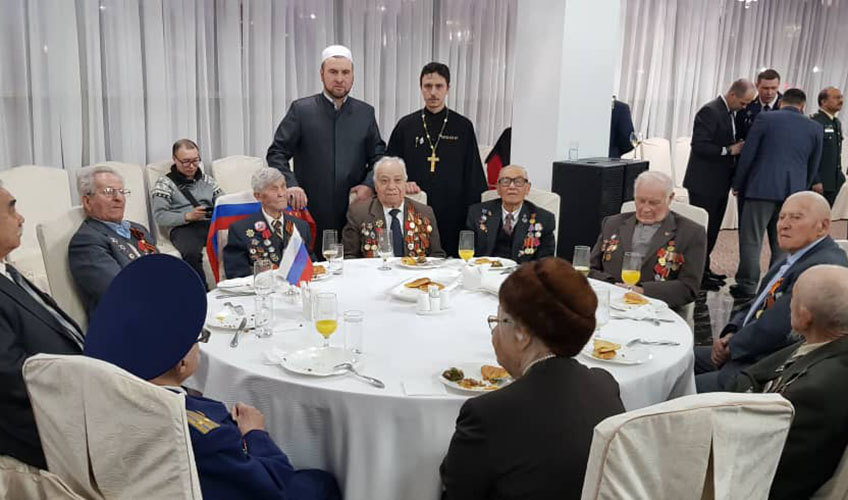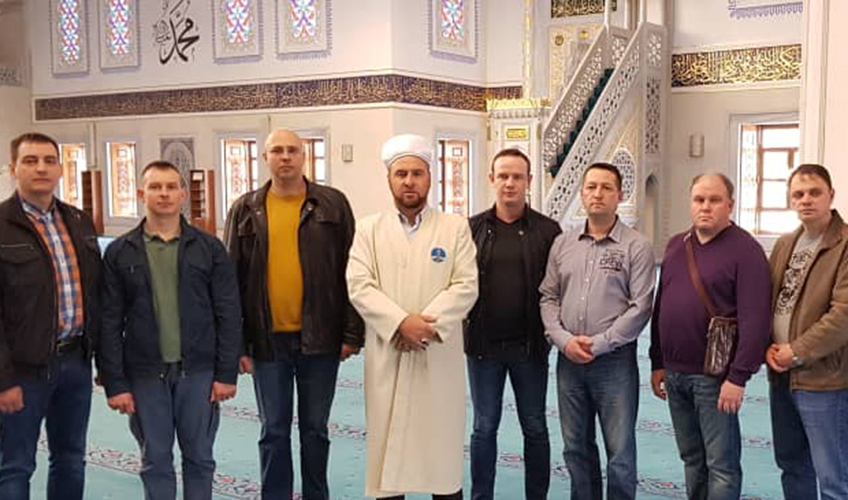Imam Muhammad Durgalov and his service to the people
“An imam must have high morals and spiritual qualities, they must support peace and encourage respect for all,” says Muhammad Durgalov, imam of the city of Kant, Kyrgyzstan.

After graduating from school, Muhammad Durgalov received a religious education and a diploma specialising in teaching Arabic language at a madrasah in Sokuluk district. Muhammad has been working as an imam in the city of Kant since 2002 and is one of the imams that took part in the short-term training courses and seminars for religious leaders.
These training courses and seminars were held in partnership with the Fund for the Development of Spiritual Culture ‘Yiman’ and International Alert Kyrgyzstan. More than 1,400 imams have been trained across different regions of the country. The training aimed to bring together religious leaders, civil society members, journalists and government officials to learn about and discuss key issues affecting religion and democracy in the country. It was also to help religious leaders strengthen their efforts to effectively interact with the community around matters of peace and stability and prevent local level conflicts.
The modern imam should be able to answer different questions. The imam should always be on the same wavelength as the development of society, and be prepared to understand and respond to all changes and innovations.
“I use the knowledge I received in seminars for religious leaders constantly and translate it into my work with parishioners, and I see pretty good results,” Muhammad tells us.
Muhammad says the seminars offer an opportunity to exchange experiences with colleagues, make new acquaintances and hear real examples of the imams’ achievements.
“These seminars bring us together and help us understand each other even better. Regularly in multi-sect communities we hold meetings with young people on various topics that motivate them to get an education, serve their country, be positive and do good. Moreover, I apply this knowledge even in my personal life because it allows, first of all, to look at myself from another perspective and change myself for the better.”

Speaking about the features of his city of Kant, with a population of just over 21,000 people, he highlighted its multiple nationalities and large number of young residents. According to the imam, it positively allows for interfaith dialogue and brings together many ethnic groups and clergy of other faiths.
According to Muhammad, the role of imams is very important in the development of tolerance and understanding of other religions, due to their influence and the status as spiritual leaders.
“In general, the residents of Kant treat each other with great respect. In addition, we often carry out various activities and events, which are attended by residents of many ethnic groups and clergy of other faiths. For example, we regularly hold events with the Orthodox Church, we go to each other’s holidays and hold sports tournaments. All this unites us, we have become like one big friendly family.”
“We should always be ready to serve and help people. After Friday prayers most people do not immediately leave, but ask various questions related to religion.”
It is very important for the imam to be literate, be able to see the destructiveness of radical ideas and have the potential to counter such ideas. I believe that the seminars should be held on a regular basis, this will only increase the professionalism of imams.
About the project
The ‘Constructive dialogue on religion and democracy’ project aims to maintain an open public dialogue on freedom of religion and belief, the role of religion in people’s lives, the relationship between state and religious institutions, as well as on national strategies on religion.
This project provides a platform on religious–secular dialogue, comprising of religious leaders, scholars, civil society members, journalists and government officials, to discuss key issues on religion and democracy in the country and to identify knowledge gaps.
We trained clergymen to strengthen interfaith harmony and religious tolerance, preventing domestic violence and on gender issues, and civic participation in a secular, democratic society. Youth peer mentors were trained in facilitating conflict-sensitive topics, and 90 discussion clubs were held among youth throughout the country with the participation of about 3,000 participants.







